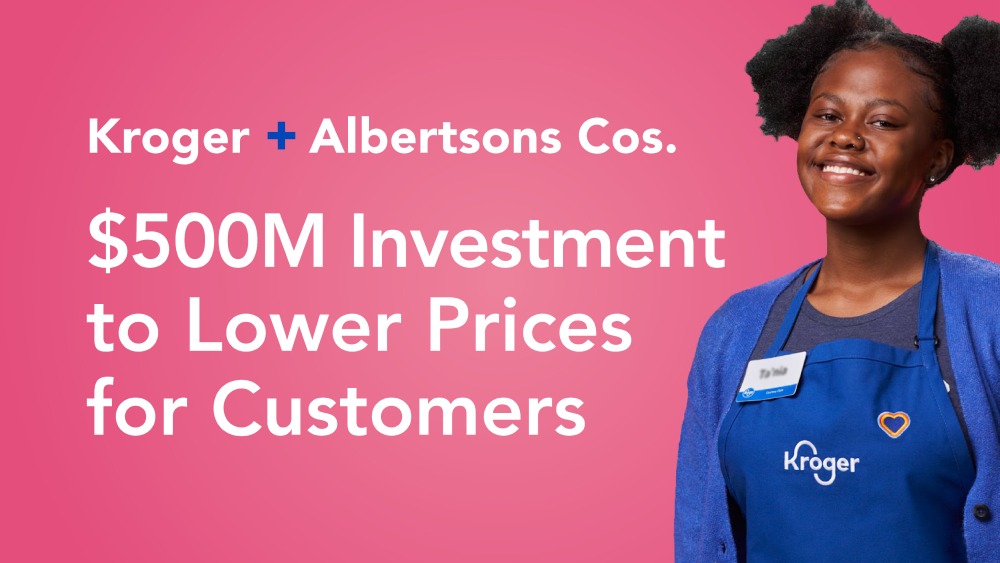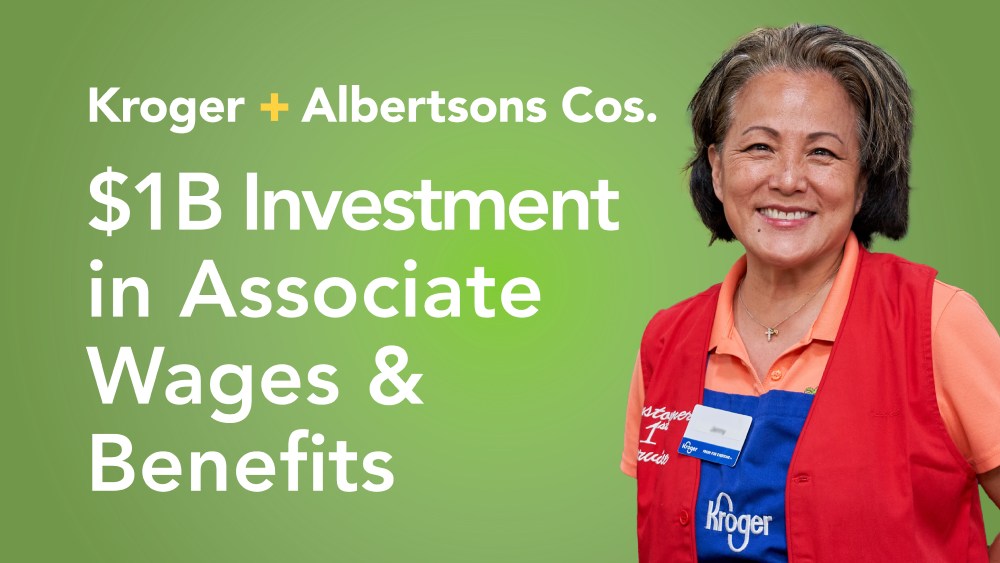| |
| |
| |
| Presented By Kroger and Albertsons Companies |
| |
| Axios Pro Rata |
| By Kia Kokalitcheva · Nov 26, 2022 |
| Happy Thanksgiving weekend (if you're in the U.S.)! Because of the holiday, we have a special edition with a sampling of what my colleagues on the Axios Pro team have been up to this past week. - I'll also be in your inboxes on Monday, while Dan frolics around Montreal, the city of my childhood. 🇨🇦
- 👋 Reminder: Feel free to send me tips or comments by replying to this email or on Twitter @imkialikethecar.
Today' Smart Brevity™ count is 1,040 words, a 4-minute read. |
| |
| |
| 1 big thing: The supply chain's food waste problem |
 |
|
| Illustration: Gabriella Turrisi/Axios |
| |
| Though innovations in the supply chain have cut refuse and improved access to fresh food, solving the waste challenge remains an uphill battle, write Climate Deals' Megan Hernbroth and Retail Deals' Kimberly Chin. Why it matters: The issue presents a trillion-dollar opportunity for myriad startups focused on food waste — if they're able to navigate complex silos and shifting regulations. By the numbers: Food waste companies raised $1.85 billion in private funding as of September, per Crunchbase. The big picture: The cost of incorporating food waste technology into the supply chain is high — and the current alternative (i.e., the landfill) is much cheaper, says Callie Babbitt, a Rochester Institute of Technology professor. - The food supply chain is siloed, posing an obstacle to the mass scaling of new technology, says Babbitt, who leads a group working on circular economy solutions.
Zoom in: When economic incentives fall short, state and local policies aligned with waste reduction can spur supply chain innovation. - California passed a statewide law requiring food waste separation and management by businesses and residences alike.
- New York has passed a similar bill that calls for businesses to donate excess food, and to recycle scrap that can't be donated.
Meanwhile, corporate America is working to better shrink its carbon footprint, especially ever-elusive Scope 3 emissions. - Scope 3 encompasses the carbon footprint of a product's entire lifecycle, from seed to landfill, and often accounts for a large portion of a company's total footprint.
- It's often hard to measure, given the siloed nature of the supply chain.
The bottom line: Ironically, the most effective way to scale food waste technology is to de-scale the supply chain, says Ruben Smit, CEO of grocery e-commerce startup Sunrise Daily Goods. - The more localized the supply chain becomes, the easier it is to reduce waste, Smit says. "All of these outcomes are possible if you keep the supply chain short."
Go deeper |
    |
| |
| |
| 2. "Dirty soda" pioneer Swig's stake sale |
 |
|
| Illustration: Victoria Ellis/Axios |
| |
| Private equity firm Savory Fund sold a majority stake in "dirty soda" pioneer Swig to fellow sponsor Larry H. Miller Companies, the chain announced. Why it matters: Dirty drinks — soda or sparkling water with added flavorings — are a trend once limited to Utah, as an alternative to alcohol or caffeinated drinks. But they are growing in popularity among consumers thanks to the efforts of Swig, and founder Nicole Tanner, reports Retail Deals' Richard Collings. - No financial details were provided, but the chain generated some $30 million in revenue in 2020, according to PitchBook.
- In the last two years, Swig has doubled its footprint, and intends to have 46 locations by the end of this year and another 25 locations next year.
Go deeper |
    |
| |
| |
| 3. Nursing homes a tough PE nut to crack |
 |
|
| Illustration: Gabriella Turrisi/Axios |
| |
| Despite private equity owning only an estimated 5% of the nursing home industry, its high-profile problems in the sector have made it a bogeyman to politicians, and the public. Why it matters: Even as studies show that 9 of 10 adults prefer to age in place, the need for institutionalized settings will persist. But the climate has long made investing a challenge for PE, wrote Health Tech Deals alumna Sarah Pringle before her departure from Axios. Driving the news: In his State of the Union address last March, President Biden called out private equity investors for their role in raising costs and reducing quality at nursing homes, despite their small presence. - More recently, the Biden administration unveiled a new, publicly available database displaying ownership of all Medicare-certified nursing homes.
- Carlyle Group's disastrous ownership of HCR ManorCare — which among other things included allegations of patient neglect — hasn't helped the case for further investment in nursing homes, nor have the COVID-era horror stories.
Go deeper |
    |
| |
| |
| A message from Kroger and Albertsons Companies |
| Serving America with fresher food, faster |
| |
 |
| |
| With Albertsons Cos., we will provide customers nationwide: - A wider selection of Our Brands products to save without compromising on quality.
- An even more seamless and personalized shopping experience.
- Additional savings on products they love.
|
| |
| |
| 4. Lightspeed's Michael Mignano chats apps |
 |
|
| Photo Illustration: Lindsey Bailey/Axios. Photo courtesy of Lightspeed Venture Partners |
| |
| Lightspeed Venture Partners' Michael Mignano invested in Circle Labs, a startup building AI-powered virtual characters, earlier this month. The product offers a fun application of generative AI, a sector he's been closely tracking. Why he matters: Mignano joined Lightspeed earlier this year to help lead consumer investments. Prior, he co-founded podcasting platform Anchor, which Spotify acquired in 2019; he also ran Spotify's podcast, live audio and video teams. - Mignano discussed the year's media trends with Media Deals' Kerry Flynn. The interview has been lightly edited for length.
What are trends you've found most fascinating this year? Recommendation media: Social platforms did content distribution through friend graphs for the past 15 years or whatever, and now, led mainly by TikTok, we're seeing that all the major platforms are shifting to be algorithmic in terms of content distribution. - Machine learning-based algorithms have just [been] found to be way more efficient in terms of matching the right content with the right person at the right time... Plus, social graphs have created all sorts of abuse problems... It feels like social is no longer social for the major platforms.
Go deeper for the rest of the interview |
    |
| |
| |
| 5. The FTX effect |
 |
|
| Illustration: Annelise Capossela/Axios |
| |
| FTX's collapse has hurt some of its centralized exchange brethren more than others, data from CryptoCompare shows. Why it matters: Right after FTX's implosion, investors appeared to lose trust in all of crypto. Two weeks since, a more nuanced picture is emerging, writes Fintech Deals' Lucinda Shen. Of note: Binance, the world's largest crypto exchange and FTX's chief competitor, has become the biggest winner. - Though Binance suffered bitcoin outflows in the week after FTX's plunge, there has been a net inflow of about $1.12 billion since Nov. 8 — the date Binance and FTX announced their ill-fated deal that quickly fell apart.
Context: FTX did compete more directly with Binance than it did with Kraken or Coinbase, as FTX operated largely outside of the U.S. Go deeper |
    |
| |
| |
| 🧮 Final Numbers |
 Data: Box Office Mojo; Table: Tory Lysik/Axios Visuals A merger between Jason Blum's Blumhouse and James Wan's Atomic Monster would create one of the biggest players in the horror genre. - Why it matters: Outside of superheroes, horror has been one of the few types of films that can consistently get people to go to movie theaters, reports Media Deals' Tim Baysinger.
Go deeper |
    |
| |
| |
| A message from Kroger and Albertsons Companies |
| Unlocking new opportunities for associates |
| |
 |
| |
| With Albertsons Cos., Kroger will build on its long track record of supporting associates: - Unlocking new opportunities for 710,000+ associates nationwide.
- Investing $1 billion to continue raising associate wages and comprehensive benefits.
- Embracing diversity, equity and inclusion.
|
| |
| 🙏 Thanks for reading! And to Javier E. David and Amy Stern for editing. See you on Monday for Pro Rata's weekday programming, and please ask your friends, colleagues and deal lovers to sign up. |
 | | Your personal deals analyst is here. | | |











No comments:
Post a Comment